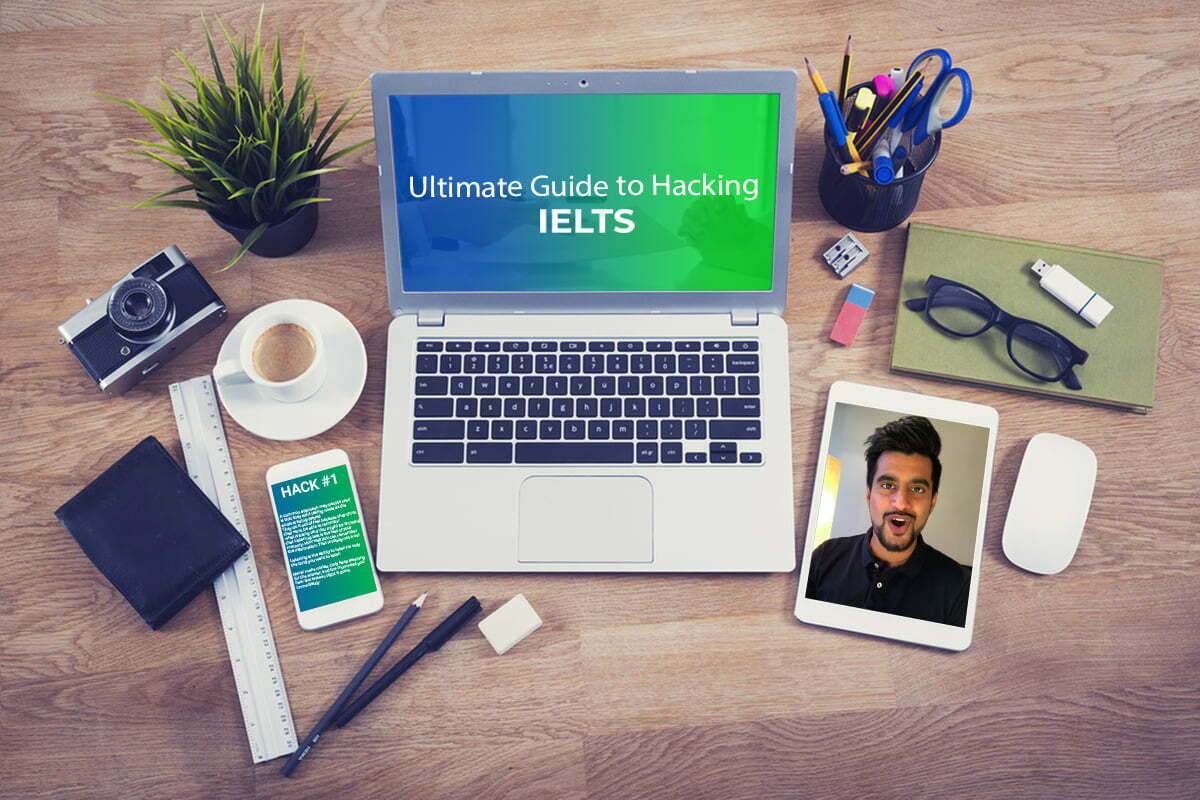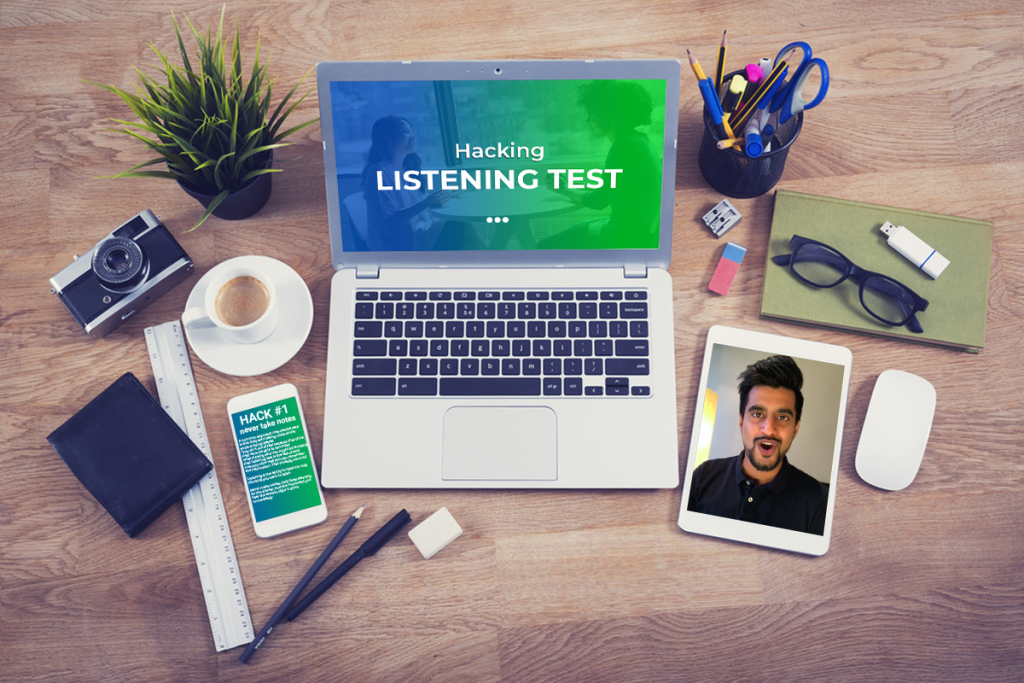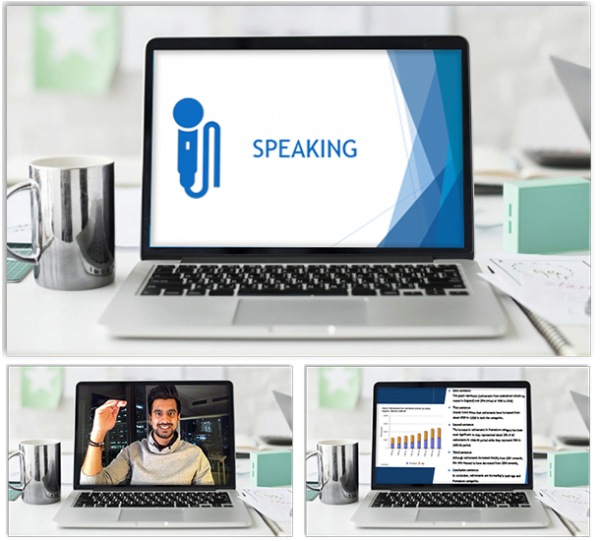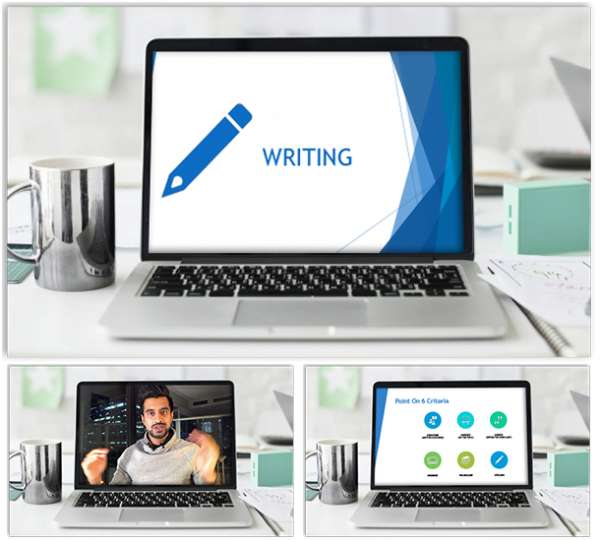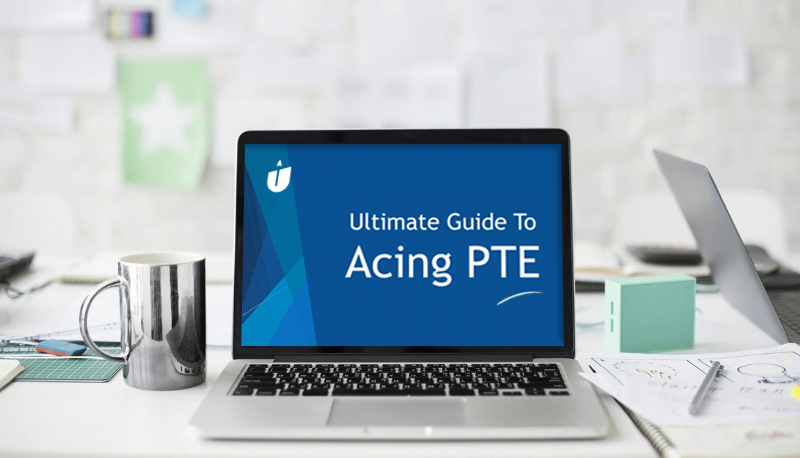IELTS is a skill. Like any other skill, you can prepare for IELTS in a smart way. It can be deconstructed and learned very quickly if you only focus on the critical elements.
In this post, I am going to share with you tips and strategies that will help you get an 8+ Band in IELTS.
I know the feeling when you open any IELTS guide book and it tells you that you are scored on Lexical Resource, Cohesion, and whatnot.
What do these terms even mean? The secret is: You don’t need to know.
You also don’t need to have a high vocabulary, or understanding of adjectives, pronouns, verbs, etc.
There is a smarter way to prepare for IELTS.
In the same way I got 8.5 / 9 Band in my IELTS, in the first attempt, and all these other readers of Ultimate Academy got similar or even higher scores.
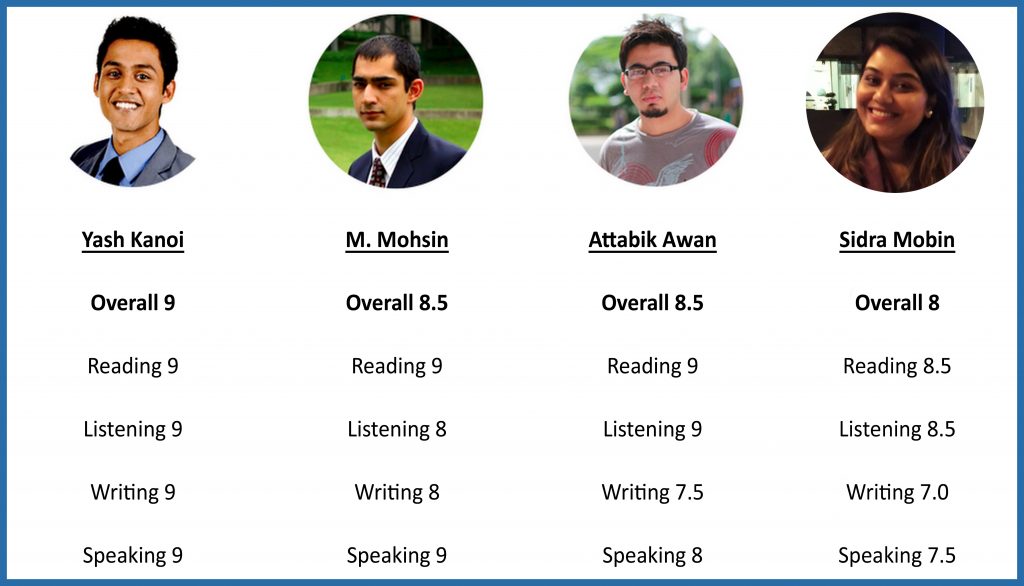
By the way, the post is from my online video course, Ultimate Guide To Hacking IELTS, in which I share hacks, tips, strategy roadmaps, examples, and live demos of techniques to score 8+ in all 4 modules of IELTS.
It is exclusively for Ultimate Academy subscribers.
You can access the course below:
[wd_hustle id=”5″ type=”embedded”/]
Let’s now dive into some hacks that you can use to quickly take your score to 8+ Band:
2 Hacks For IELTS Writing: Tips To Get 8+ Band

Hack # 1: The Structure
If your IELTS exam is tomorrow and you are reading this section today, I want you to take only one thing to prepare for IELTS out of this: Writing is all about Structure.
Your examiner is your audience. When your audience reads anything that you’ve written, it experiences one of the two states: pleasure, because of a smooth reading experience, – or headache, because of a messy reading experience.
If you read any blog post on Ultimate Academy, it’s written in a way to make it a pleasurable experience for you. Each of my blog posts is an 8+ in the IELTS Writing Test.
How to create a solid structure in your Writing Test?
1) You will always have 5 paragraphs. Each paragraph will be focusing on just one thing.
A paragraph can be as short as two lines. It doesn’t have to be a big block of text.
There will always be one introduction paragraph, 3 body paragraphs, and one closing paragraph.
We will look into the detail of what goes into each of the paragraphs for each scenario when we prepare for IELTS in the video course.
2) You will use simple English.
This is counter-intuitive to what you are taught elsewhere. Everybody else tells you to focus on learning new words to increase your vocabulary.
There are two reasons I will not tell you to do this:
- The amount of time you will waste in learning new vocabulary will not have any significant impact on your IELTS score. Instead, if you focus on learning smart hacks and techniques, you will see a disproportionate increase in your score.
- Wrong use of a difficult word in your writing will get you negative marks, but the use of the simple correct word will not affect it negatively. If anything, it will add to an overall flow of writing and help you score more.
Hack # 2: The Planning
There’s a famous quote by Abraham Lincoln,
If I had 6 hours to chop down a tree, I’d spend the first 4 hours sharpening the axe.
I can completely understand that when you are already faced with the challenge of time constraint, if I tell you to spend first 3-5 minutes just planning your letter or essay, you will not agree with me.
Even if you agree now, on the test day you will already be nervous, and under the pressure situation, you will dive straight into writing to make the most use of every single minute you have.
But if I tell you that an essay that will take you 40 minutes to write, can be written in 20 minutes if you spend 5 minutes to plan first – making it a total 25 minutes task – would you?
This is exactly what the difference is between writing without planning and after having a structured chain of thoughts.
In Writing Task 1: Letter, your planning will include answering all 3 bullet points given in the topic with just 1 line.
For example,
If the topic says Write a letter to the hospital. In your letter:
- explain why you would like to do unpaid work at the hospital
- say what type of unpaid work you would be able to do
- give details of when you would be available for work
You will first use 3-5 minutes to answer each of these questions in 1 line.
- explain why you would like to do unpaid work at the hospital
1 line: I’m passionate about helping other people because it makes me feel good about myself - say what type of unpaid work you would be able to do
1 line: I can take care of wounds by providing antiseptic and bandage - give details of when you would be available for work
1 line: I can start working from next month
Once you have this planning completed, you will just expand on your 1 line answer by inventing details (numbers, dates, places, examples, etc) around it.
You will expand your 1 line into 2-3 lines by adding context to it, and you will have your 150 words crossed with a very well-structured, well-planned letter.
Here’s an example of adding details to the first bullet point’s 1 line answer:
- explain why you would like to do unpaid work at the hospital
1 line: I’m passionate about helping other people because it makes me feel good about myself
Since childhood, I have been extremely passionate about helping people around me. Whenever I used to play in the streets with other kids and if someone used to get hurt, I used to be the first one to rush towards him for assistance. As I grew up, I realised that helping other people gives me the most satisfaction in life.
That’s already 57 words!
We will go into detail about constructing essays effortlessly for both writing tasks, tips, exercises, and examples when we prepare for IELTS in the video course, to make sure you get 8+ in your Writing Test.
3 Hacks For IELTS Listening: Tips To Get 8+ Band
Hack # 1: Never Make Notes
A common approach many people take is that they start taking notes as the audio is being played. They do it out of fear because they think they won’t be able to remember what is being said.
You might be thinking that the Listening Test is the test of your memory. How well you can remember the information. That is totally not true! Instead, the Listening Test is your ability to listen for only the thing you want to listen to.
For example, if I ask you a question: “How much did Virat Kohli score in the last match?”
Then I turn the volume on and you hear commenter speaking, “India has won the match with a splendid 3rd wicket partnership between Virat Kohli and Rohit Sharma. Together they put on 159 runs in just under 20 overs. Kohli was unbeaten at 89, while Sharma contributed 70 runs to the partnership before being caught at the boundary”.
If you were making notes of this entire commentary, you would jot down a lot of entirely useless technical information. And because you were busy writing, you might even end up confusing the scores of both the batsmen.
Instead, if you had just read the question and known exactly what you were listening for, you would have patiently listened until the commenter announced Kohli’s score. You would have listened and answered, “89”.
You will train yourself to only listen for the answer.
Remember in a pressure situation, your memory will be very less. By the time the audio has reached the third sentence, you will have forgotten what the first sentence was about.
Hack # 2: Tone Gives It Away
This might take some practice for you (I’ve given examples when we prepare for IELTS in the video course). The tone of the speakers helps you figure out the answer.
Answers are spoken loud and clear so everyone can understand them.
If the speaker in the audio speaks something very fast or swallows his words, that you find it difficult to understand or keep up, the answer is never there.
For example:
If you have a question: ___________ will form the jury for the competition.
You will hear in the recording, “the writing competition will be judged by the famous authors from the literary club”.
The words famous authors will be emphasised in a way that they stand out in the entire sentence for your mind to process.
Hack # 3: Write-And-Scrap Strategy
The number one trick IELTS uses to confuse listeners is giving wrong information… and then correcting it.
For example, if you ask me about my mobile number, I will say “0123 456789“.
But in the IELTS recording, very often the speaker will say, “0123 768954. Oh sorry, I’ve changed my number recently. It’s actually 0123 456789”.
The speaker will intentionally give you wrong information, and then the correct one.
How do you answer such questions? The strategy you are going to use is called Write-And-Scrap Strategy.
At no point, you should be waiting for the correct answer and only write when you have that. That’s because you would not know if the first answer being given is correct or incorrect.
The moment you hear the first answer, you will write it at the same time. But as the narration goes on, and the speaker changes the answer, you will write the new answer and then scrap the previous one.
If you wait for the correct answer without writing the first one, you will have forgotten the first sentence by the time recording reaches the second or third sentence.
We will go into detail of the actual strategy to solve questions, more hacks, tips, exercises, and live-demos when we prepare for IELTS in the video course to make sure you get 8+ in your Listening Test.
3 Hacks For IELTS Reading: Tips To Get 8+ Band
Hack # 1: Not All Questions Are Created Equal
There are only 5 different types of questions in the Reading Test. Only 1 type of question requires you to have a full understanding of the passage.
All the other 4 types of questions require you to locate information.
For these 4 types, you can pretty much answer all questions by understanding as less as 20% of the passage only.
That’s why for each section, you will first flip over the passage to skim the questions and find out whether you need to understand the passage at all.
Note that I’m not asking you to read each question in detail to understand its meaning. Just skim through questions to understand what type of questions they are.
Also, once you skim through the questions even before looking at the passage, you will develop a general idea of what the passage might be talking about. With that idea at the back of your mind, when you read through the passage, it will just make much more sense than it would have otherwise.
Hack # 2: Heading + First Sentence = Full Passage
In reading passages, a common mistake that most people make is that they try to skim through the entire passage quickly to get an idea of what’s written in this passage. That’s a terrific waste of time!
You will instead read the heading first, and then the first sentence of each paragraph.
If the first sentence is very short, for example, less than one line of your sheet, then you will read the first two sentences.
Also, instead of reading them fast, you will read them slowly and absorb them. This will take just 10-15 seconds per paragraph, but you will get a very good idea of what this entire passage is talking about.
Remember from Hack#1 – you do not need to understand the meaning of the full passage for 4 out of 5 types of questions. Reading the first sentence only will save you up to 80% of the time that you would otherwise waste in reading full passages.
After some practice, you will discover that you will end up reading only 40-60% of the total passages when answering the questions. So why should you waste time trying to understand the full passages?
Hack # 3: The Ultimate Match Making
Each question has keywords to tell you exactly where to look for the answer. So even before you look for the answer, just look for the keyword.
For example, if the question is, “A trunk shot shows a group of people facing camera” – True, False, or Not Given?
You will first identify that the keywords are trunk shot. How do you know that? Because all the other words, such as group, people, camera, are just common words that will appear several times in the passage.
You will quickly go back up to the passage and find the words trunk shot, and underline them.
Because of Hack#2, 8 out of 10 times, you will know exactly which paragraph the keyword might be in.
Some of the useful keywords to note are names, dates, numbers, and places. These are easy to locate.
Once you have the keywords underlined, read the question again to understand what the question is asking.
Then read one sentence before the keyword, the sentence in which the keyword is, and one sentence after the keyword. More than 90% of the time, you will find the answer within 3 lines of the keyword. Usually, in the same line as the keyword.
We will go into detail of each of the 5 types of questions, strategies to solve them, more hacks, tips, and exercises when we prepare for IELTS in the video course to make sure you get 8+ in your Reading Test.
3 Hacks For IELTS Speaking: Tips To Get 8+ Band
Hack # 1: Simple Wins Over Complex
If you are like most people, your biggest concern is walking in the interview and trying to impress the interviewer. This is the wrong mindset for IELTS!
IELTS Speaking test is different from job interviews because in job interviews, your intellect matters. Your ideas, facts, and opinions should be right.
In the Speaking Test, you can be totally lying, making up stories, and saying things that are unpopular, and still score high. How you say it matters, not what you say.
You don’t have to impress the examiner with your knowledge and intelligence. You are just scored on your fluency in English.
And what’s the best way to be fluent? By being simple.
Don’t try to use difficult words to show your range of vocabulary, or try to construct complicated sentences. These will take a lot of your time in preparation and won’t contribute highly to your score.
Instead, if you can answer each question in simple words using short sentences, you will score very high.
Hack # 2: Fluency Doesn’t Mean Fast
Do me a favour and search ‘Obama Out‘ on YouTube. This is Barack Obama’s last speech at the White House dinner. This is a masterclass in speaking.
Is he speaking fast?
Not at all. Instead, he is speaking the slowest you might have ever heard anyone speak. And yet, he is the best public speaker in the world.
Fluency is all about first thinking, then speaking without hesitation.
This is a game-changer mindset.
Speaking Test demands a structure more than anything. You need not speak fast, but you should be clear and precise. Take your time to gather your thoughts and then choose the right words.
I’ve included a real-time demo of my interview in the video course to help you prepare for IELTS by demonstrating this and all other hacks, tips, and strategies.
One more thing, your accent does not matter. South Asians generally have this inferiority complex that our accent is not at par with the western accent. Well, that might be true when you are trying to score a date with a westerner 😉 But for IELTS, there are no superior or inferior accents.
Hack # 3: Tonality Is The Secret Key
The use of tonality is the number 1 difference between a good speaker and a great speaker. No one tells you this!
It will take a bit of practice, but would you have practiced if you weren’t even aware of it?
Tonality is the way we modify our emphasis on certain words to create a better mental visual in the listener’s mind.
Let’s take a sentence, “I live in a large house on the far end of the town”.
Emphasise LARGE and FAAAAAR, and you will change the entire image of this sentence.
In the normal way, the listener has to process the words to make sense of what you are saying. But by adding tonality, the listener’s mind will automatically create an image of your house and its location.
As a result, the listener’s mind will believe that you are a good speaker, and you are going to get a high score.
We will go into detail of the structure to answer each type of question, more hacks, tips, live-demos, and exercises when we prepare for IELTS in the video course to make sure you get 8+ in your Speaking Test.

In the complete online video course, with 84 video lectures and assignments, I share with my students hacks, tips, strategy roadmaps, examples, and live-demos of implementing techniques to score 8+ in all 4 modules of IELTS.
You can access the course here:
[wd_hustle id=”5″ type=”embedded”/]

